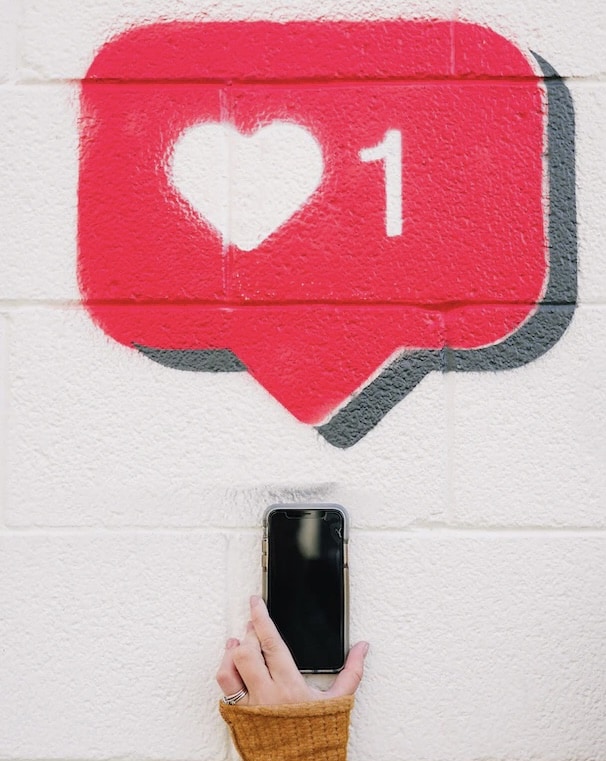
Growing up with Social Media and its Impact on Mental Health
The use of technology and social media has become the norm in the majority of lives nowadays. Growing up, children, adolescents and teenagers are exposed to social media and digital platforms as part of their day to day, with adolescents and young adults having the highest rates of social media use.[1] Being such a big part of their life, it is important it is considered when assessing their health, both physically and mentally.
There have been links between social media use and increases in anxiety, depression and loneliness. Though it is difficult to confirm causation, it is likely that social media will exacerbate these feelings if already present.
One reason behind this could be the established linear links between social media and social isolation.[2] [3]which potentially affects a child’s ability to develop social skills and make friends. when a person is more occupied by digital devices and virtual reality, he or she is not learning to communicate with those around them in the real world. Feelings of isolation may also stem from what someone sees posted, for example seeing that their friends are together but they have not been invited, which can lead to feelings of isolation and can intensify feelings of insecurity and rejection.[4]
There have also been links between social media use and effects on body image and expectations.[5] The ability to use filters and distort images can enhance standards and expectations of ‘beauty’. Alongside this, constantly seeing idealistic body image or lifestyles will often lead to negative self comparisons, self-criticism, lower self esteem[6] and cognitive distortions. When growing up, this will negatively impact a person’s self-perception, and can set a precedent for unrealistic expectations.
Another reason social media can impact mental health is its ability to distract a person from a task at hand. Time spent on social media will detract from a person’s ability to engage in hobbies, physical exercise, school work and essential sleep. As sleep is vital for growth, recovery, learning and overall health and mental wellbeing, it is important that it is prioritized for children and adolescents. However, research has shown that those who use social media more were distracted from sleep or struggled to sleep, which in turns contributes to feelings of anxiety and depression.[7] If it becomes a distraction from hobbies, children may start to miss out on being physically active, having opportunities to make new friends and learn new skills. All of this contributes to poor mental health outcomes.[8]
However, social media use is not all bad. If used with caution and being mindful of its effects, it can be an opportunity to learn, be creative, connect with others and share stories, which can impact mental health in a healthy, positive manner. Technology and social media use are now such a prominent part in all of our lives it is virtually impossible nor desirable to remove them completely. However, if young people are monitored and equipped with tools to be mindful, it is possible to mitigate against its harmful effects on mental health.
How can we be more mindful?
- Limit screen time / time spent on social media. Apps have now set the ability to time-out after a set time period which can be useful to ensure limited time is spent on social media
- Engage with accounts that are not harmful or triggering to mental wellbeing.
- Keep screens out of sleep routines, remove them so they are not a distraction.
- Turning off notifications or devices in social occasions to allow everyone to be more present in the moment and be part of social interaction.
- Parents can assist by learning about social media and talking with their children. Read more here: https://www.youngminds.org.uk/parent/parents-a-z-mental-health-guide/social-media/
[1] J.S Hausmann et al. ‘Adolescent and Young Adult use of Social Media for Health and its Implications. (2018) DOI: 10.1016/j.jadohealth.2016.12.025
[2] B. Primack et al. ‘Social Media use and perceived social isolation among young adults in the U.S’ (2017). DOI: 10.1016/j.amepre.2017.01.010
[3] C. Miller. ‘Does Social Media Use Cause Depression?’ (2022) Does Social Media Use Cause Depression? – Child Mind Institute
[4] E. Mir et al ‘Social Media and Adolescents and Young Adults Mental Health’. Social Media and Adolescents’ and Young Adults’ Mental Health | National Center for Health Research (center4research.org)
[5] W. Crenna-Jennings ‘Younge people’s mental and emotional health: Trajectories and drivers in childhood and adolescence’. (2021) EPI-PT_Young-people’s-wellbeing_Jan2021.pdf
[6] E. Mir et al ‘Social Media and Adolescents and Young Adults Mental Health’. Social Media and Adolescents’ and Young Adults’ Mental Health | National Center for Health Research (center4research.org)
[7] H. Cleland-Woods. ‘Sleepyteens: Social media use in adolescence is associated with poor sleep quality, anxiety, depression and low self esteem’ (2016) #Sleepyteens: Social media use in adolescence is associated with poor sleep quality, anxiety, depression and low self-esteem – PubMed (nih.gov)
[8] W. Crenna-Jennings ‘Younge people’s mental and emotional health: Trajectories and drivers in childhood and adolescence’. (2021) EPI-PT_Young-people’s-wellbeing_Jan2021.pdf




This Post Has 0 Comments